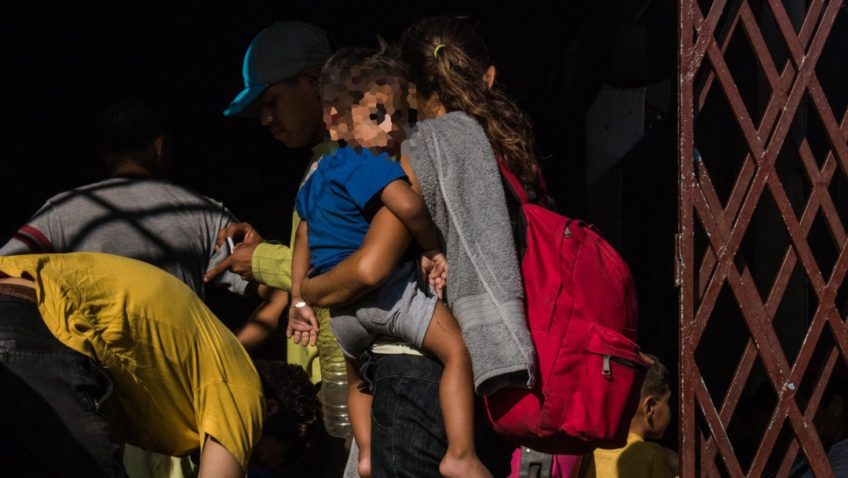Seeking to know more about the impact of the emergency caused by the Covid-19 pandemic on the need for sexual and reproductive health services of women of reproductive age, a quantitative study under a feminist perspective on sexual and reproductive rights was carried out between October and December 2020. The investigation involved the use of structured interviews with 225 women aged 10 to 49 years old and 68 primary health care centers in the capital district and Miranda State.
Interviews with women had the purpose of gathering information about their fertility, use of contraceptive methods, unmet need for contraception, need for attention and knowledge of care options in cases of sexual violence, and information on prenatal care; While interviews in health centers focused on knowing the percentage of primary care centers that offer family planning and/or prenatal consultation services and/or consultation for sexually transmitted infections and HIV and/or clinical treatment of sexual violence; the percentage of primary health care centers provided with sterilized instruments and constant access to water in their facilities, handling and knowledge on the attention of cases of women victims of sexual violence, and the number of women who attend prenatal care.
The findings indicate that:
- The Global fertility rate of women aged 15 to 49 years old in the Capital District and Miranda state is 50.7 per 1,000. The rate stands at 43.6 for the Capital District alone, and 58 for Miranda state. The average number of pregnancies per woman is 2.07 and the average number of live births of 1.97.
- The Prevalence rate of use of contraceptive methods for women aged 15 to 49 years old is 49.8. The figure is 24.2 percentage points below the regional average for Latin America and the Caribbean and 6.2 percentage points below the rate reported for Venezuela by the UNFPA in 2019 and 2020. The prevalence rate drops to 37.9 for adolescents aged 15 to 19 and 35.7 for women in Miranda State alone, which indicates a lower use of contraceptive methods among these groups.
- The unmet need for contraception in sexually active women stood at 30.7; well above the regional average of 10 according to the UNFPA 2019 report on the State of World Population.
- 29.7% of the women interviewed cannot afford contraceptive methods and 24.9% need to have access to them for free because their income is insufficient to buy them.
- The most sought methods are contraceptive implants, oral contraceptive pills and intrauterine devices.
- The amount of information on contraceptive methods is insufficient or inexistent for 60% of girls aged 10 to 14 years old, and fair for 31% of girls aged 15 to 19. Only adult women aged 20 to 29 years report having enough information.
- None of the pregnant women surveyed attended prenatal care during the first 6 months of the pandemic. Most of them attended their first consultation in October, weeks into their pregnancy. Fear of contagion was the main cause to forgo prenatal care consultation in 26.7% the cases, while restrictions on mobility and economic problems were the main cause for 20% of the surveyed women. Besides, 71.9% of the surveyed centers reported a decrease in the influx of prenatal care patients during the Covid-19 pandemic.
- A high number of women and girls do not know their rights or cannot identify the different forms of sexual violence. Distrust in the institutions of the Justice System at the time of filing a complaint is the main reason why women decide not to report acts of sexual violence.
- During the pandemic, there has been a reduction of 17.85% in the number of primary health care centers that provide family planning services, and a reduction of 17.24% in the case of the facilities that provide prenatal care. There has been no variation in the number of health centers that provide STIs consultation and specialized attention in sexual violence during the pandemic. It should be noted that in the last two years all these services have reduced their scope of attention. There has been a 17.64% decrease in the number of centers equipped with a surgical sterilizer, and a 26.47% decrease in the number of health facilities with access to drinking water through pipes. Similarly, critical conditions were identified regarding the frequency and sufficiency of access to drinking water. This continuous deterioration seems to obey to the complex humanitarian emergency experienced in the country, which involves a crisis in the provision of public services and the health system in general, rather than to the emergency brought about by the Covid- 19 pandemic.
- The training of the health providers in the attention of cases of sexual violence shows weaknesses concerning legal medical aspects.
The study concluded that about half of the women and girls of the Capital District and Miranda State do not have the necessary conditions to make a safe and informed decision on their sexuality and reproduction, nor are they guaranteed promptly access to high-quality contraceptive services and methods. The situation described existed before the onset of the Covid-19 pandemic, which has since increased the barriers to access to services due to fear of contagion, mobility restrictions and the closure of health facilities, as well as worsening economic conditions.
The recommendations of the study are aimed at the implementation of virtual and/or telephone services (telemedicine) for providing care and information in the fields of sexual and reproductive health, contraceptive methods, sexually transmitted infections and sexual violence; the reopening and adaptation of primary health care centers; the enlargement of the provision and facilitation of the distribution of contraceptive methods, as well as the design of information campaigns and training programms for health providers in cases of sexual violence.
You can read the full study in Spanish HERE.
Translated by José Rafael Medina




